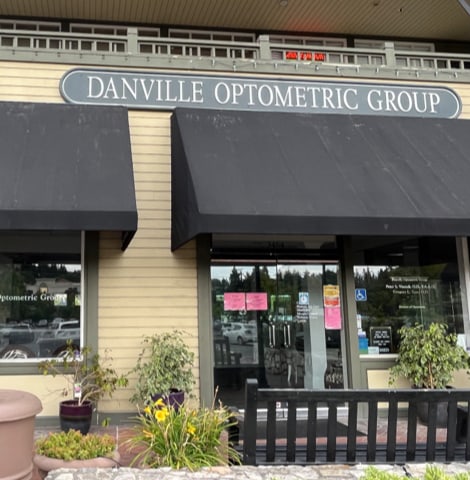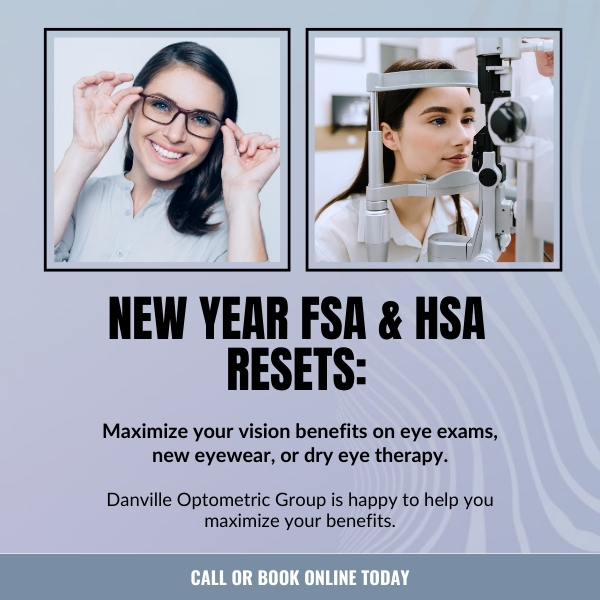With the rise of online eyewear retailers and technological advances, how we shop for glasses has transformed. Traditionally, optometrists were the one-stop option for eye exams, professional advice, and quality eyewear. But today, online platforms offer another option that makes the decision more complex.
You should weigh the pros and cons of each option yourself, but buying your glasses from your optometrist will be an ideal option for many people. Eye doctors and the opticians that work with them can offer expert, tailored advice on choosing frames and lenses because they have personal knowledge of your unique lifestyle and vision needs—as well as expertise regarding the brands, styles, and types of eyewear that are worth considering.
The Pros & Cons of Buying Glasses from Your Optometrist
When you think of buying glasses—regardless of whether you’re looking for traditional glasses, specialty eyewear like computer glasses, or sunglasses—a visit to your optometrist is a natural starting point. Your optometrist’s office offers several unique advantages that online retailers can’t replicate.
- Precise fit and adjustment: Optometrists and opticians provide in-person adjustments to ensure your glasses fit optimally. These measurements—like pupillary distance, facial wrap, vertex distance and pantoscopic tilt—are crucial for correct vision, optimal functionality and comfort. These measurements can only be done in person and with specialized equipment and software. These cannot be done online.
- Professional expertise: Your eye care team can guide you on the right lens type and coatings based on your prescription and lifestyle. Whether you need digital free form customized progressive lenses, aspheric myopia-controlling or customized digital computer lenses, or anti-glare coatings that prevent fingerprints (oleophobic), and/or Blue filter (there is no such thing as blue light lenses), our expert advice helps ensure your glasses meet your needs.
- Integrated services: If you’ve just had an eye exam, purchasing glasses directly from your optometrist streamlines the process. We can access your prescription and guide you without delays or misinterpretations and customize the lens to what the doctor exactly recommends based on your ocular health and visual requirements. Online retailers do not have this information or your medical records nor do they want them.
- High-quality products: The eyewear we carry is carefully selected based on our standards for quality. At our practice, we offer something for every style and budget, but they’re all quality frames made of the highest-quality materials and assembled in Italy, Japan, France, and in the USA. Online retailer almost exclusively use products made in China.
- Repairs and adjustments: Many optometrists’ offices offer after-purchase services too, such as repairs, cleaning, or adjustments, for free or at a minimal cost.
How Do Online Eyewear Retailers Compare?
The growing popularity of online retailers has reshaped how many people shop for things, including new eyewear. The experience of buying glasses online may include:
- Variety: The range of frames available online is large with many colors like your doctor’s office. The difference is that you can’t try them on and when you can you don’t know if it is the correct size or fit for you since there is no optician present. Selecting carefully is more essential when you have to pick from so many options without understanding how your correction is affected by the frame dimension.
- Amazon-like buying experience: Because you can’t try on your glasses in person like you can at your optometrist’s office, patients must guess which frames look good and you don’t have control over what the temple lengths are. In fact, you cant change the temple length online at all. The average return rate for apparel and jewelry online is around 40%. So by the numbers, this is not the best way to choose eyewear nor does it assure a patient the best fit and the new generation of lenses both single vision and progressive must be within 0.25mm accuracy to assure the best vision.
- Virtual Try-Ons: Features like virtual try-ons powered by augmented reality (AR) can help you visualize how frames will look on your face.
Cons of Buying Glasses Online
Online shopping may have its significant advantages, but it’s not without some disadvantages:
- Accuracy of fit: While some retailers guide you on measuring your pupillary distance, errors can still happen without professional oversight. A poor fit can lead to discomfort or limit the effectiveness of your lenses. Pupillary distance is only one of many measurements that are not standard of care in the optical industry. You now need not only the pupillary distance but the vertex distance, pantoscopic tilt, face form, optical center, and the newest near-reading behavior measurements which can only be done by a licensed optician or doctor with patented software and devices. This cannot be done online and thus, online will never be able to offer the latest lenses or designs.
- Customer support challenges: Resolving issues like returns can be slow. Repairs are almost impossible as identical frames are not readily available. Online retailers buy them in bulk as they are mass produced which leads to quality issues. One frame is not the same as others and when they are out there are no replacement pieces or screws. There is no person to contact if there is a defect in the coating or distortion in the lens. This is why going to see a professionally licensed optician is critical.
- Quality concerns: Not all online retailers are created equal. Almost all use the cheapest lower-quality materials (polycarbonate which has the lowest quality of vision amongst all lens material known to man), meaning your frames or lenses might not provide you with the best vision. In fact, 50% of patients in polycarbonate never visually see to their potential as there is inherent distortion in the lenses. The antiglare coatings offered online are not the latest and that is why they fingerprint or always look dirty. This type of AR coating is over 20 yrs old and only transmit 90% of visual light. The newest coatings by Zeiss and Crizal are all oleophobic and repel all dirt and oil and thus you see much better as they transmit 99.95% of all light which means you see much clearer especially at night and on the computer.
- No Verification of correction: How do you know if your prescription was filled correctly? There is no live person, licensed doctor or optician to verify your prescription once it is received. This is a large problem since over 50% of lenses made online are not correct and often would be rejected by major manufacturing labs. When making lenses are your doctors office, the contracted lab verifies it with a live person and then once received the doctor office then re verifies the lens again before calling a patient. This is not done and there is no quality control by the online retailers. Online retailers do not have the man power nor the budget to hire such people. Their goal is to make the cheapest pair of glasses possible and get them to you as soon as possible.
- No immediate adjustments: Unlike optometrists, online retailers cannot provide in-person adjustments for your frames. Every frame MUST be adjusted once a prescription lens is inserted. The temples must be adjusted to hold the frame level and from falling down. The frame front must be adjusted to wrap correctly with the correct angles. The optical center height and often segment height must be adjusted every time to assure the best vision for distance and reading. This is impossible when done online and done EVERY time by a licensed optician at your doctor’s office.
Why Eye Health Still Comes First
Whether you buy your glasses online or from an optometrist, the importance of maintaining your eye health cannot be overstated. Annual comprehensive eye exams help ensure your prescription is accurate and allow your eye doctor to detect early signs of serious eye conditions like cataracts, glaucoma, and macular degeneration.
With routine exams, your optometrist will be familiar with your visual history and can provide tailored advice to keep your eyes functioning at their best. That includes helping you select the right glasses.
Tips for Making an Informed Decision
Before you make your choice, consider these helpful pointers:
- Understand your prescription: Some prescriptions, like those involving high diopters or progressive lenses, might be better filled by an optometrist to avoid complications. Teenager and children aspheric lenses that help with focusing while on computers or iPads are not available online or at places like Costco. These newer lenses are only available from your eye doctor’s office.
- Evaluate your lifestyle: If you’re constantly switching glasses for different activities—like computer work, sports, or driving—consulting an optometrist can ensure you get the right lenses for each need.
- Check the return policies: If buying online, review policies for returns, exchanges, and warranties. Many online retailers offer generous policies to address any issues you might encounter but are time consuming.
- Look for quality: Whether online or offline, prioritize quality over price. Frames should be durable, and lenses should include the specific coatings you need. For example, you can consider anti-scratch or UV protection coatings.
- Strike a balance: If costs are a concern, consider a hybrid approach—get your eye exam and prescription from your optometrist, then potentially explore the doctors online offers. Many offer equivalent pricing that will match the quality online with your budget. Many doctors have packages that offer quality that is better than online with prices that very similar and yet offer packages that are also between the highest quality and the online equivalent. There is a package for every patient’s budget. All you need to do is ask.
Making the Right Choice for You
Ultimately, where you choose to buy your glasses depends on your priorities. If you value professional advice, personalized fittings, and ongoing care, purchasing from your optometrist might be the right choice.
Whichever route you choose, your focus should remain on optimizing your eye health. Glasses are an investment in your daily comfort and well-being, so take the time to weigh your options carefully. Call or stop by and visit our experienced team at Danville Optometric Group. We’re happy to review your eyeglasses needs, provide an up-to-date prescription, and offer tailored, expert advice on frames and lenses.













